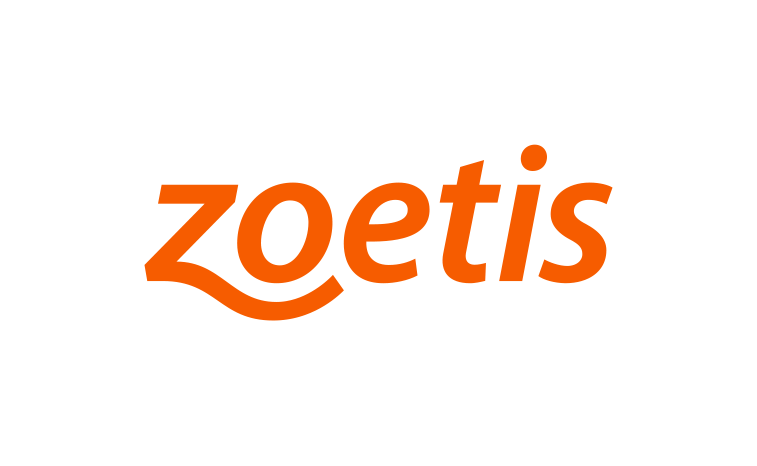



Zoetis receives European Commission Marketing Authorization for IMPROVAC®, for use in female pigs from 10 weeks of age
IMPROVAC use causes a temporary immunological suppression of the ovarian function and oestrus- IMPROVAC® reduces the incidence of sexual behavior in gilts intended to market and unwanted pregnancies if raised with intact males, improving animals’ welfare
- IMPROVAC® is a vaccine that induces the production of antibodies against the gonadotropin releasing factor (GnRF), causing a temporary immunological suppression of the ovarian function and oestrus
- Extended claim European Commission Marketing Authorization for use in female pigs issued in November 2022
Zoetis announced that the European Commission has granted the company marketing authorization for IMPROVAC® for use in female pigs (gilts) intended to market from 10 weeks of age, to reduce their sexual behavior during maturation (standing oestrus) and the incidence of unwanted pregnancies when in contact with intact male pigs.
IMPROVAC is a two-dose vaccine that, upon the second injection, makes the pig produce antibodies against its own gonadotropin releasing factor (GnRF), causing the gilt a temporary immunological suppression of the ovarian function and oestrus, which will help veterinarians and producers in reducing sexual behavior in maturing gilts that are raised for market.
“Building on our company purpose to advance care in animals, we at Zoetis, are very proud about this IMPROVAC claim extension. IMPROVAC is increasingly used to reduce boar taint in pork from male pigs, a practical and effective alternative to either physical castration, or to the production of intact males and its known associated issues,” said Zoetis’ Global Director of Commercial Development for Swine, Dr Alvaro Aldaz. “Now we are eager to expand the use of IMPROVAC to gilts in Europe as a practical and flexible solution for pig veterinarians and producers.”
Improving sustainability in swine production
Originally IMPROVAC was approved in Europe in 2009 for use in intact male pigs. Vaccinated males show reduced aggressive behavior and other issues associated with rearing intact males for market. Beyond the welfare benefits, the vaccine is unique in that it received the Environmental Product Declaration certification because of additional contributions to improve environmental sustainability, based on reduction of waste produced by vaccinated pigs when compared with physically castrated males.1
IMPROVAC in female pigs is also effective soon after the two-dose vaccination program is completed. The first dose is administered from 10 weeks of age and just primes the immune system; the second dose, administered four to eight weeks after the first, induces the peak in production of antibodies against GnRF, which results in the temporary immunological suppression of ovarian function. The onset of immunity can be expected within one week after the second vaccination, and the ovarian function is demonstrated to be suppressed for nine weeks after the second vaccination. This leads to reduction of sexual behavior, which is an important problem in production systems where intact male pigs are raised comingled with maturing gilts and there is a substantial risk for unwanted pregnancies, usually found at the time of harvest.
“Keeping sexually-mature females separately from entire males but in the same building may still increase levels of aggression and mounting amongst males,” said Dr Emma Fàbrega, Animal Welfare Senior Researcher, Animal Welfare Program (IRTA, Spain). “The use of IMPROVAC in gilts may be a useful tool on farms where they share air space with entire males, or where the sexual behavior of gilts cycling can create concerns, such as during loading and transportation to processing.”
A practical solution for pig producers
“Several million intact male pigs are raised annually in Europe, in countries like Spain, The Netherlands, UK or France. Comingling entire male and female pigs in mixed fattening pens is a common practice, also supported by scientific research2. In mixed pens, entire males display fewer mounting behaviors: less injuries, less broken legs, less skin lesions, better carcass quality. But then there is an increased risk of unwanted pregnancies. The use of IMPROVAC in female pigs will help reduce the incidence of those,” said Dr Patrick Bourguignon, Swine Veterinary Practitioner in France. “Another benefit of vaccinating fattening female pigs with IMPROVAC can be fewer gilts in oestrus, therefore theoretically reducing the risk of attracting wild boars, which may carry infectious agents including African Swine Fever virus and Porcine Respiratory and Reproductive Syndrome virus, among many others - in open-air conditions.”
About Zoetis
As the world’s leading animal health company, Zoetis is driven by a singular purpose: to nurture our world and humankind by advancing care for animals. After 70 years innovating ways to predict, prevent, detect, and treat animal illness, Zoetis continues to stand by those raising and caring for animals worldwide – from livestock farmers to veterinarians and pet owners. The company’s leading portfolio and pipeline of medicines, vaccines, diagnostics and technologies make a difference in over 100 countries. A Fortune 500 company, Zoetis generated revenue of $7.8 billion in 2021 with approximately 12,100 employees. For more information, visit www.zoetis.com.
- Moraes et al. (2013) Life Cycle Assessment (LCA) and Environmental Product Declaration (EPD) of an immunological product for boar taint control in male pigs. Journal of Environmental Assessment Policy and Management Vol. 15, No.1
- Courboulay et al. (2014) Influence de la composition du groupe en engraissement (moxte ou unisexe) et du nombre de départs à l’abattoir su le comportement et les performances des porcs et le risque d’odeurs des viandes de mâles entiers. Journees Recherche Porcine, 46, 255-260








